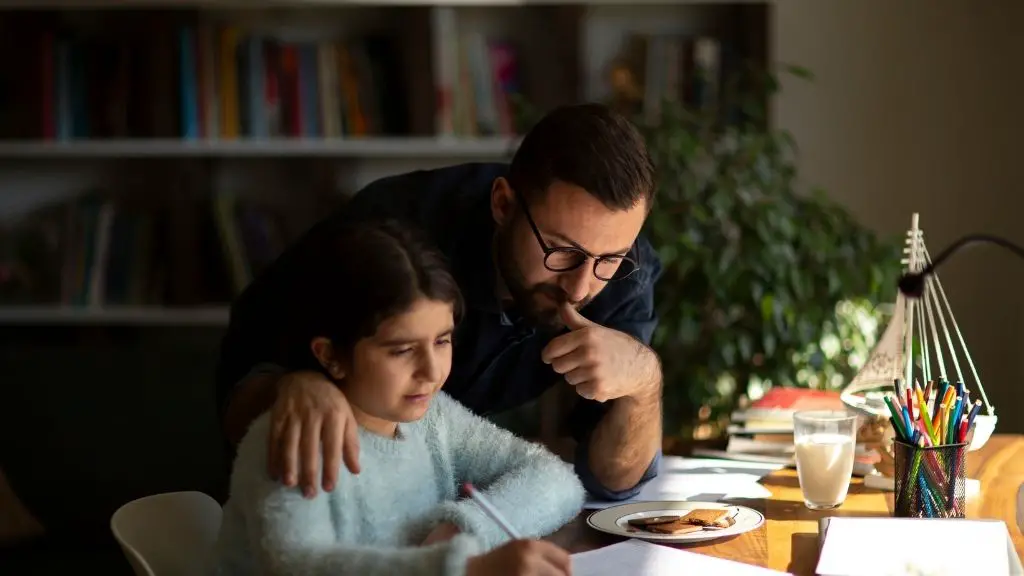Does Homeschooling Cause Depression?

Do you often find yourself feeling angry, irritated, or depressed? Does your child feel like this a lot? If so, you might wonder if homeschooling causes depression.
Homeschooling has been gaining popularity, especially among parents who want the best for their kids. But while homeschooling is a great alternative to conventional schooling, it comes with its own set of challenges.
What are the effects of home-schooling on a student? Does home-schooling cause depression? Read on to know more!
Schools can have a major influence on a child. Students learn not only academically but also socially. Being in a school with a classroom, a class full of students, many teachers, etc., helps a student grow by interacting with people and encountering various life lessons and more. When a school facilitates not one, not two but many experiences in a child, why do people opt for homeschooling?
A homeschooled student may not necessarily have classmates or a lot of teachers. They may be alien to the norms of studying in a school. How does homeschooling affect one’s mental health? What is the association between mental health and homeschooling?
Is homeschooling bad for mental health? Does home-schooling cause depression? What are the negative effects of homeschooling?
Read ahead to find out!
What is Home-Schooling?
Home-schooling, home education, or elective home education is a way of teaching children from home or a place away from traditional schools. Home-schooling is an arrangement where the student doesn’t have to be enrolled in a public or private school but can learn or be educated through parental or guardian guidance. In homeschooling, parents take up full and complete responsibility for their children’s education instead of otherwise splitting it with an educational institution, like a public or private school.
Homeschooling is a concept that began in the late 1970s. A man by the name of John Holt, an educational theorist, and school reform supporter condemned the formal schools’ rote-learning as a way of learning. He began the modern homeschool movement because he believed that modern schools facilitated an “oppressive classroom environment” that was designed to make children compliant employees. [1]
Homeschooling may be opted by parents who believe that a school may not encompass all needs of their child/children. Moreover, people with many opinions, different beliefs, and different faiths may choose not to send their children to a traditional school. Instead, they choose to homeschool.
Gifted children, children with special needs, children that may need special attention are mostly the children whose parents may opt for homeschooling. This is because they believe that the general teaching or schooling given to 30 odd students may not be profiting their child in specific.
Reasons for homeschooling students are, of course, not limited to these reasons.
What is Depression?
Depression is a common and serious medical condition where the way we think, feel and act is affected negatively. Depression however, is treatable. Depression can be triggered by a traumatic occurrence in life. It is also affected by genetics, the environment during growth, and other causative agents.
Why is homeschooling linked with depression? Homeschooling means that a student is not a part of a class with classmates, teachers, etc. People may argue that not being a part of a class community may lead to less or no friends, social life, socializing skills, etc., which may trigger a depressive episode in students. But it is not as simple as that. It is true that traditional schooling and homeschooling both have their pros and cons.
Positive Effects of Homeschooling
Easier Understanding of Curriculum
When a child is homeschooled, the student-to-teacher ratio is almost always 1:1, which means individual attention is given to the student. A topic that a student may not be able to understand can be explained in detail, as many times as necessary. Similarly, the teacher will not have to spend a lot of time explaining a topic that may be simple for the student. Gifted children, children that require special attention can be taught in a way that is profitable for them. Similarly, teachers can adapt to teaching styles that work exclusively for the student in question.
Saves Student’s Time
Usually, traveling to school, being on time, changing classes, having breaks, traveling back home all take a lot of time. By opting for homeschooling, the teacher can sit with the student and finish teaching in their 30 minutes to 1-hour slots, taking breaks only when necessary. This saves a lot of time for the student. In this free time, they can partake in a lot of extra-curricular activities, for example, music, martial arts, dance, etc.
School is a lot more enjoyable
When students are taught individually, teachers can focus in depth on subjects the student seems to enjoy more. This way, delight-based learning occurs and students learn because they want to, not because they’re forced to.
Students become creative
When children are homeschooled, they have the independence to think outside the box and not be impacted by what other kids are saying. They come up with creative solutions to problems they may face in their day-to-day lives.
Negative Effects of Homeschooling
No exposure to different cultures
Schools are often where children meet different people from all over the country or sometimes, even the world. Children are exposed to diverse cultures when they get educated in a school. Homeschooling eliminates the possibility of meeting new people of different cultures.
Lack of infrastructural support
Going to a school is not limited to sitting in a classroom and listening to the teacher teach something. School experiences include going to a ground and learning sport, visiting practical labs, field trips, being a part of school cultural events, etc. For someone who is being homeschooled, these facilities are not accessible.
Lack of Motivation
When the complete responsibility of education of the student is on the parent, there can be times when they lose the motivation to do the absolute best for their ward. When a school as an organization tries to do the same, it does not happen because a school has a team of staff, the responsibility of many students to uphold.
Lack of socialization
A school is a hub for all friendships and connections to arise for a child. Many children tend to make friends that eventually become friends for life. They understand life lessons like being sensitive to others’ feelings, being responsible for their own actions, etc. When children are home-schooled, there is still scope for socialization through being friends with neighbors, cousins, siblings, etc. But it is considerably lower when one is homeschooled.
Does Homeschooling Cause Depression?
You might believe that homeschooled children are prone to depression but that’s not exactly true. Homeschooled children are more likely to be brave and independent while talking to people or standing up for themselves, unlike traditionally schooled students who may be fearful of higher authorities like school teachers because of how intimidating they can be.
While one might expect that homeschooled children may not have access to different cultures, life experiences, and diversities, their ecosystems and surroundings are enough to imitate the environment of a school. They can find friends in the park, at their place of worship, at various events, etc.
Depression and Schooling
Depression is caused by biological factors, environment, and other traumatic events. There is no study to prove that homeschooled children are more prone to depression or depressive episodes. Depression in students may be an issue, but no studies prove that homeschooling is a reason behind this.
Young adults or teens, may at times feel alienated and lonely due to growing age. They may also feel stressed or pressured due to academic stressors and more. This, however, is not impacted by homeschooling.
Studies have proven that the onset of depression in students is usually seen in college students. This is mostly due to separation from home, increased responsibilities, anxiety, and more. Academic stress along with the stress of beginning a new page of life, that is university begins the onset of depression. [2]
FAQS
What is Homeschooling?
Home Schooling is the type of education that is given to the student in the comfort of their homes. Students who are home-schooled do not visit traditional schools or have a classroom with classmates.
Is Homeschooling cheaper than Public School?
Home Schooling is not cheaper in comparison to Public school; however, it can cost as much as most private schools. This is because extracurricular activities, other trips, etc., will have to be funded by the parents independently.
Do I need to be a certified teacher to teach my child at home?
Most US states do not require parents to be certified, but this entirely depends on the state’s Department of Education.
Wrapping up
Although homeschooling is a relatively different schooling system where the child may not have a class and classroom, it does not imply that it will trigger a depressive episode.
There may be cases of loneliness, anxiety, and academic pressure.
Depression does not have a direct association with Homeschooling.
| In conclusion, there is hardly any research to prove that homeschooling leads to depression. |
References
- “A Brief History of Homeschooling.” Responsible Home Education, Coalition for Responsible Home Education.
- Pedrelli, Paola et al. “College Students: Mental Health Problems and Treatment Considerations.” Academic psychiatry : the journal of the American Association of Directors of Psychiatric Residency Training and the Association for Academic Psychiatry vol. 39,5 (2015): 503-11.







